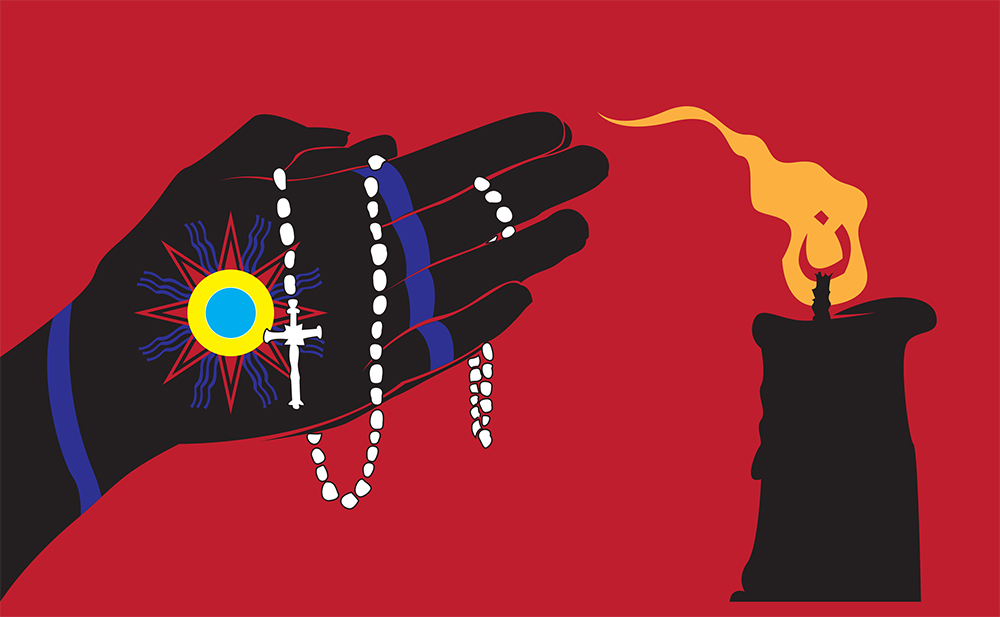As Thanksgiving approaches we will hear the story of Plymouth, Mass. being told over and over again. Most of us know the story of the Protestant Pilgrims fleeing their home country of England to come to the New World to freely practice their faith amongst each other with no fear of persecution or death. Though we are almost 400 years past that historic event, it seems pilgrims still venture to the “New World” to gain freedom of religion.
TELLING THEIR STORIES
Due to persecution from dictators and ISIS in the Middle East, Arab families are leaving their homes in Iraq and Syria and moving to America. They tend to move near each other — because of this, there are two main cities in America often referred to as “Little Baghdad”. The first is Detroit, Mich. and the second is El Cajon, Calif.
These Arab communities are not always what one would expect. The majority of the families are Chaldean, meaning that they hail from Iraq, but do not practice the common religion of Islam. Rather, they are Catholic, which is one of the main reasons they have fled their home country, acting as pilgrims in their own way by trying to find freedom from religious persecution.
Liberty Charter High School is nestled in Lemon Grove, Calif. roughly 20 minutes away from El Cajon, but has a large concentration of first generation Chaldean immigrant students. A large quantity of the students attending Literacy First Charter Schools are from the Middle East. The parents of these students speak little to no English — mostly Aramaic or Chaldean — and had to move to at least two different countries before settling down in California.
The students described their customs and the traditions the Chaldeans brought with them. The parents of these students signed a waiver from Literacy First Charter requested that the entire name/last names of their children be exempt from the story for their personal safety.
The conversations were light and laughter-filled, but when asked about what they or their parents remembered of Iraq, the students would fall silent for a moment. They would be thoughtful, then retell tales of bombings and death that plagued their families, including one student who explained how ISIS killed his older brother before they came to America three years ago.
SHARING THE SAME DREAM
Savanna, a 16-year-old Chaldean who was born and raised in California, recounted a story her mother told her from when she lived in a village in India called Iraq.
“My mom tells me these stories all the time, but the one that stood out to me was about Saddam Hussein. Everyone thinks he’s such a bad person and everyone thinks of him in a bad way. But he was a really good leader, and ever since he died, ISIS came along and there was more war and everything wasn’t as settled as it used to be,” Savanna said. “I know there was still constant war when he was president, that’s a fact, but life was a lot easier with him there. My mom would tell me that when she went to school every morning, she knew she was safe, but now, she says that if she walked from her house to school nowadays, she knows there’s no way she would be able to do that.”
Savanna’s mother remembers the better days, unlike another student, Christine, whose mother tells her daughter about her time at school in Baghdad.
“In school it was always dark, she could hear bombs, the kids would have to hide, and her friends would get killed. The surroundings were also really scary.” Christine said. “When she would go home it was still dark because the electricity would be gone, so she had to study in the dark. Through all of this they would just pray and hope everything would be okay.”
Education is very important to the close community of Chaldeans, who want their children to do well in America and prosper. Lucky for these parents, the school they have their children enrolled in shares the same dream.
LITERACY IS THE KEY
Literacy First Charter Schools started 15 years ago by Debbie Beyer, the founder and executive director of Literacy First Charter Schools, said their mission was to “serve a community that is being underserved by poor performing schools.”
“As our byline says, literacy is the key to the tree of knowledge. However, at LFCS literacy does not just mean reading writing, speaking and spelling. We take a much broader view of ‘being literate”’ to mean the process of being educated, cultured, and having skilled abilities in multiple disciplines,” Beyer said.
While literacy is emphatically pushed by teachers and staff, the students — especially the Chaldean students — are just as passionate about patriotism as they are about education. These kids are extremely devoted to America, but they are often rejected by their peers because of their background in the Middle East and the stigma that follows.
“I just want to make it a point for people to understand that every culture has the bad people and the good people and just because you see this different culture doing bad things, it doesn’t meant that the whole culture is that way,” Savanna said. “We’re very faithful, we’re very loving and peaceful and we don’t want to harm anyone.”







